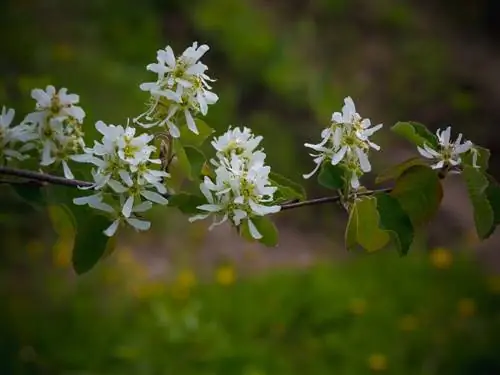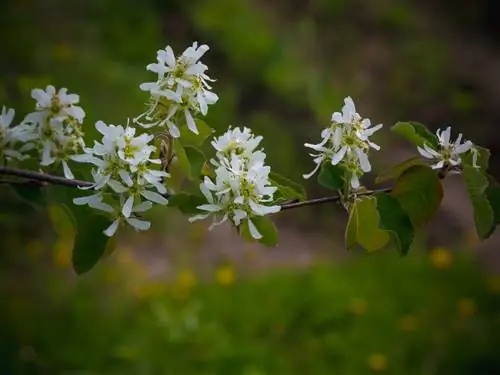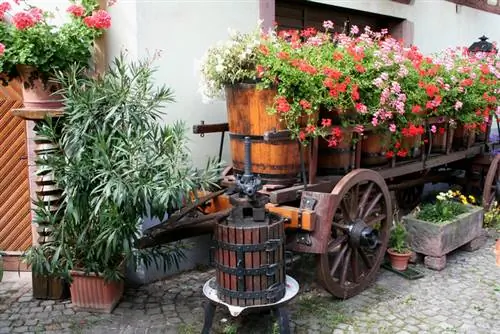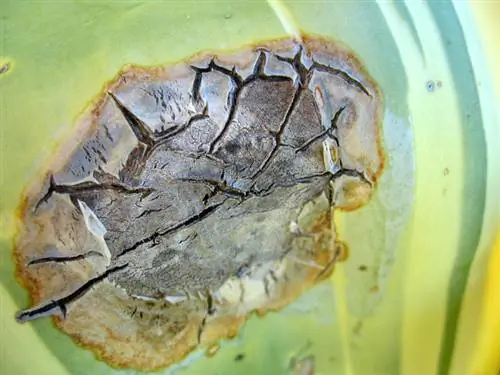- Author admin [email protected].
- Public 2023-12-16 16:46.
- Last modified 2025-01-23 11:21.
The different varieties of serviceberry are true survivors that basically require almost no care and can even thrive in rather inhospitable locations on slopes. They are not necessarily dependent on special fertilization, but of course the possible growth or size that can be achieved with these plants also correlates with the amount of nutrients available.

How should you fertilize a serviceberry?
The rock pear does not require any special fertilization, but can be supported with long-term complete fertilizer in spring and at the end of June. Alternatively, organic fertilizers such as compost, horn shavings, horn meal or dried animal manure are suitable for pot cultivation.
The rock pear can survive completely without purchased fertilizers
Since the rock pear can also cope with poor site conditions, it is not dependent on regular fertilization with certain fertilizers to the same extent as many other garden plants. This makes the rock pear a plant that is particularly valued by gardeners who work close to nature. Finally, it is generally sufficient to loosen the soil thoroughly before planting a serviceberry and then pile up some leaves around the trunk of the serviceberry every autumn. Of course, all gardeners who want to keep their rock pear in the garden as small as possible can of course also avoid fertilizing completely.
Provide a growth spurt with little effort
Because the rock pear only needs to be pruned to limit the size or shape the tree's crown, it is an ideal shrub or tree for gardeners with relatively little time. The situation is similar when it comes to fertilization: For the rock pear, it is completely sufficient if you distribute some long-term complete fertilizer in the root area of the plant in spring. To encourage particularly strong growth, you can repeat the fertilization again towards the end of June.
Ensure nutrient replenishment with natural long-term fertilizers
Especially when cultivating the serviceberry in a pot, it can be advisable to ensure a constant supply of nutrients with slowly dissolving and long-term effective fertilizers. The following proven fertilizers of organic origin, for example, are suitable for this:
- seasoned compost
- Horn shavings
- Horn meal
- dried poultry or horse manure
Tip
It is recommended to kill two birds with one stone when planting a serviceberry and to simultaneously supply heavy, dense soils with sufficient nutrients for at least a year by mixing in compost soil and also to ensure a loose soil structure.






